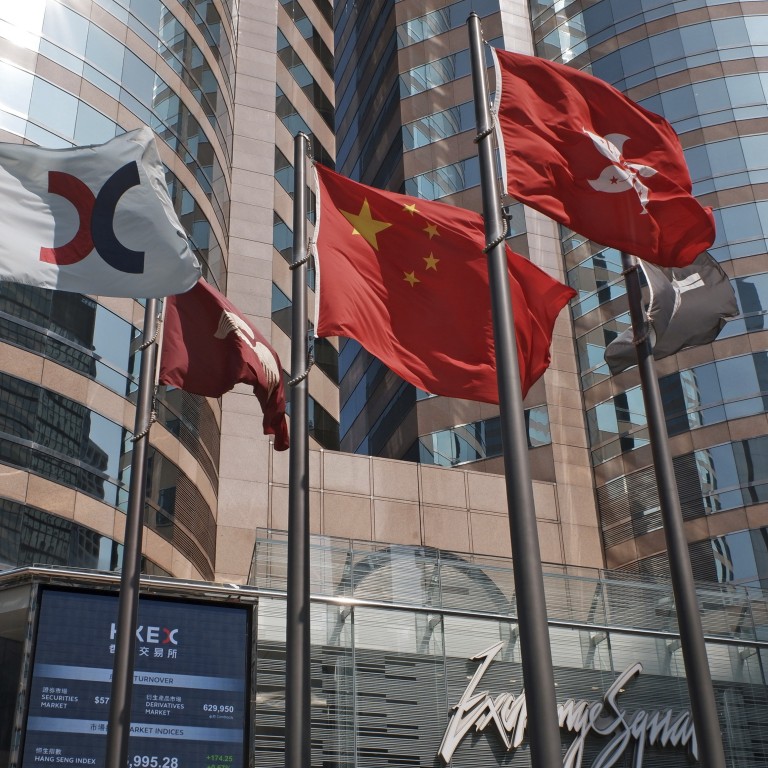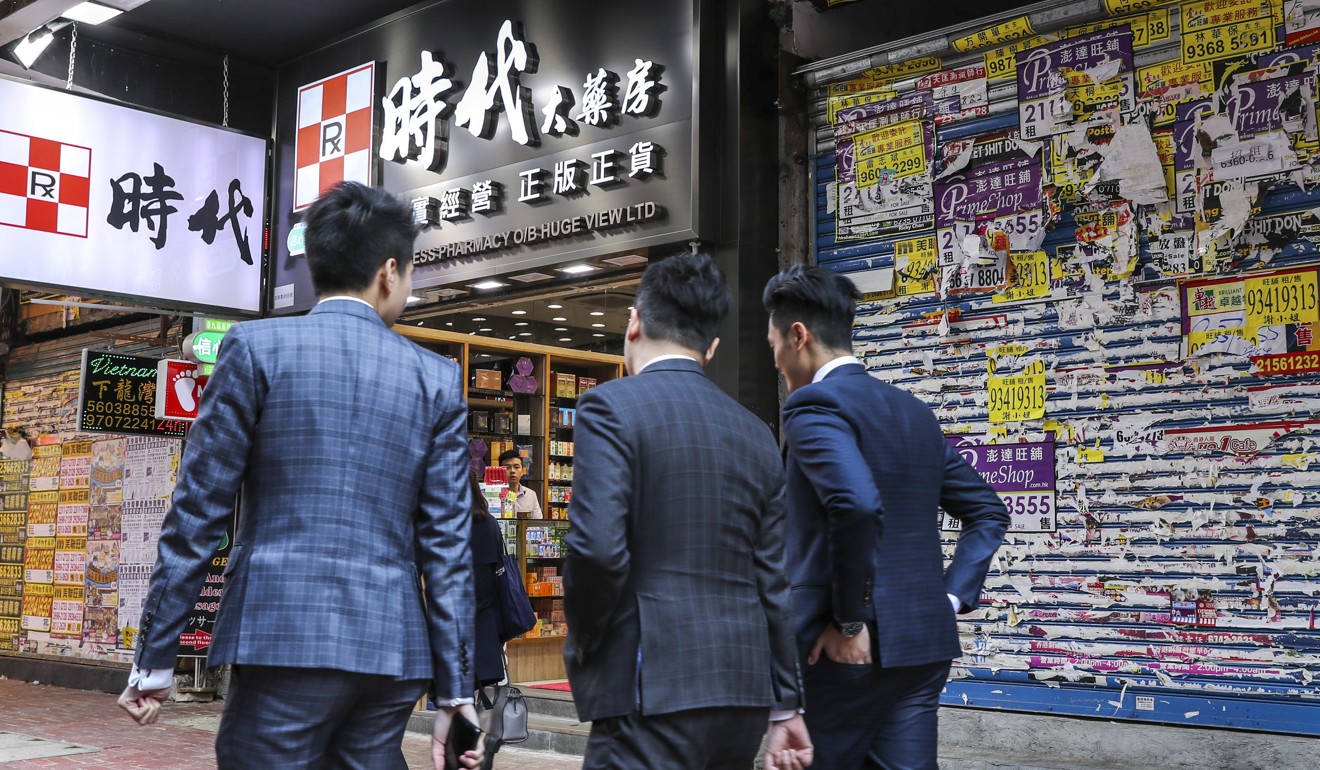
More pain for Hong Kong stocks in 2020 as smart money bets on China upside, analysts say
- UBS Global Wealth Management forecasts higher returns on MSCI China Index
- There is a lack of confidence, surprise catalyst in Hong Kong shares, Bocom International says
Hong Kong stocks are likely to underperform their China-listed peers in 2020 as political uncertainties continue to weigh on the local economy and sap investors’ confidence, analysts say.
The Hang Seng Index has gained 2.5 per cent so far this year while a gauge tracking the biggest companies listed in Shanghai and Shenzhen exchanges rose 29.4 per cent. That is the widest annual gulf since 2014, underscoring the damage caused by six months of anti-government protests, as well as investors’ rush into so-called onshore A shares as they gained more weighting in some key MSCI indices.
“It’s highly likely that the performance of the A shares market will beat that of Hong Kong next year,” said Hong Hao, head of research at Bocom International, said during a recent press conference. “The [Hong Kong] market lacks a catalyst, something exceeding market expectations, to reverse its downward trend.”
Street protests and reform inertia in Hong Kong have kept investors on the edge since June, hammering local industries from tourism to retail. After a bright start in the first quarter, the city’s stock market has traded in a narrow range at the same time tensions increased around the US-China trade war.

The performance gap is likely to continue with contrasting fortunes on both side of the border, analysts say, even as Hong Kong stocks trade at a low valuation and economists forecast China to post a slower rate of economic growth next year.
Hong Kong’s economy faces serious challenges from a lingering fallout from the protests and confidence among investors has taken a beating, Hong said. At the same time the Shanghai and Shenzhen markets are opening up and attracting large inflows of portfolio funds as MSCI added them to global indices tracked by money managers.
Foreign funds have bought US$8.7 billion worth of Chinese shares on the cross-border stock investment channel for the past 17 straight days through December 6, according to Bloomberg data, the longest stretch since an 18-day run ended on February 22.
“We prefer the MSCI China Index to MSCI Hong Kong Index, among our asset allocation in Asia,” said Dennis Lam, equity analyst at UBS Global Wealth Management, during a recent press conference. The UBS unit forecasts returns in “low teens” for the MSCI China Index next year and a low-single digit gain in the MSCI Hong Kong index.
“Profit growth and revenue growth [of MSCI Hong Kong companies] will definitely be worse than MSCI China’s,” said Lam.
Hong Kong budget deficit ‘unavoidable’ for two years, finance chief says
Helen Qiao, chief Greater China economist at Bank of America Merrill Lynch, expects political unrest in Hong Kong to ease in 2020, but warns of its lingering damage to the city’s economy. The economy fell into a technical recession in the third quarter and the government expects it to contract in 2019, the first time in a decade.
“While we’re expecting some stabilisation of the current situation and the end of most of the type of disruptive activities to businesses, we think, however, the ramifications will probably linger for the next at least two to three quarters,” she said in a recent press briefing.
Retail sector workers face huge retrenchment as protests hurt economy
Industries beyond retail, logistics and tourism will feel the pain, as she expects “a general increase in unemployment as the overall growth continues to weaken, especially towards the year-end.”
Patrick Brenner, head of Asia multi-asset investments at UK-based asset manager Schroders, however, sees opportunities in so-called H shares, or mainland China-incorporated companies listed on the Hong Kong stock exchange.
“Valuation in the short term for A shares does not look attractive, after the strong performance this year,” Brenner said. “We see more tactical potential for H shares than A shares.”
As H shares are usually more sensitive to international sentiment, any improvement in the trade talks will mean higher investor interest and support for H shares, he added.
With additional reporting by Georgina Lee and Chad Bray

